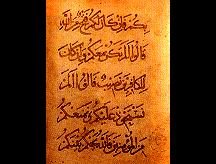
CHUM 329

|
Crosslistings: CHUM 329 |
The seminar will examine the history of 20th century from the perspective of American labor. From that standpoint, it is remarkable how the early and late years of this century resemble each other. In the early 20th
century, just like
today,
corporations of a size inconceivable just a few years before were being formed frequently. Jobs were re-structured constantly. The labor force was extremely heterogeneous. Workers from Asia, Europe (especially
Eastern Europe), the Middle East, Canada,
Mexico, the Caribbean and Central and South America migrated into, and left, the United States continuously. Union leaders had great ambitions in two eras but represented only a small part of the labor force, for they
confronted intense opposition from
employers and, often, from state, local or federal government as well. Meanwhile, writers were despairing about the demise of the male breadwinner. The unusual period in 20th century American history is the middle
decades, from the mid-1930s until the ea
rly 1970s. During those years immigration was sharply reduced. Union organization became lawful, union membership as a percentage of the labor force reached a historic peak, and many leading executives considered
cooperation with unions a wiser strategy
than confrontation. A firm alliance was constructed between organized labor and the Democratic Party. And the privileged status of the male breadwinners seemed to be secure. Yet labor historians have given a
disproportionate amount of attention to the
New Deal system, as that era is often called. In this respect we have echoed the opinion of union officials. The history of labor in earlier periods is interpreted as a prelude to the New Deal system, and recent years
as a regrettable departure. This
perspective is no longer tenable, in my opinion. The middle years do not deserve less attention, but their uniqueness must be explained and we must consider whether current conditions in labor relations are not, in
fact, the norm, historically speaking.
Hence, in this course students will work with me to develop a new interpretation of modern American labor history.
Unless preregistered students attend the first class meeting or communicate directly with the instructor prior to the first class, they will be dropped from the class list. NOTE: Students must still submit a completed Drop/Add form to the Registrar's Office.
COURSE FORMAT: Seminar
Level: UGRD Credit: 1 Gen Ed Area Dept: SBS HIST Grading Mode: Student Option
Prerequisites: NONE Links to Web Resources For This Course.
Last Updated on MAR-19-2002
Copyright Wesleyan University, Middletown, Connecticut, 06459